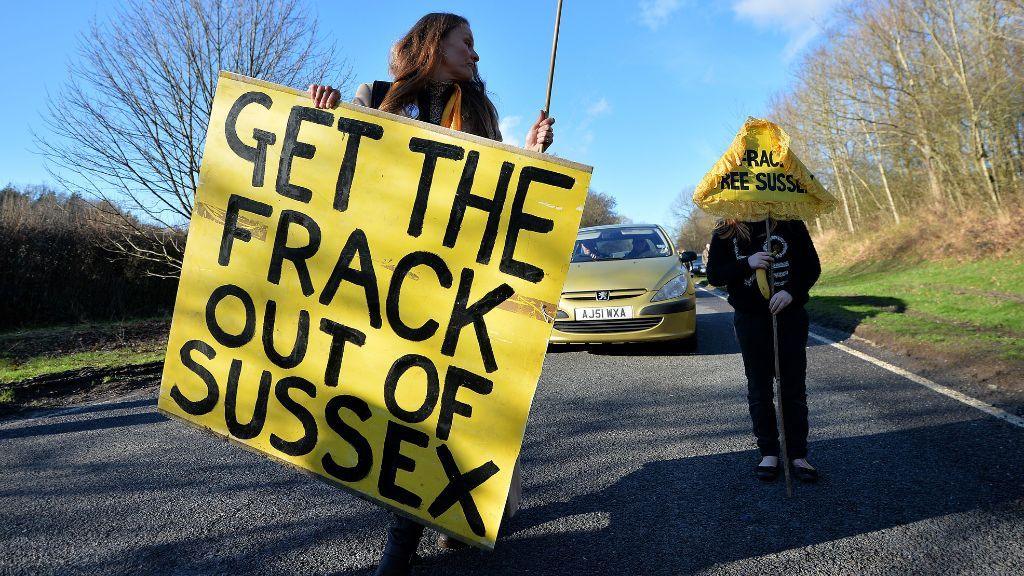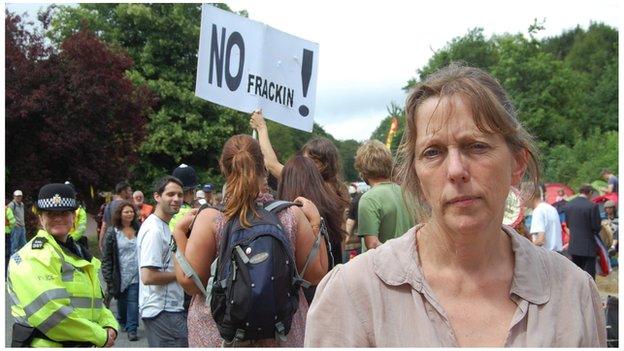Residents lose High Court fuel drilling challenge

An anti-fracking protesters held placards during a rally in Balcombe in 2014
At a glance
A residents’ group in Balcombe has lost a High Court challenge against a decision to allow fuel drilling
The Frack Free Balcombe Residents Association brought legal action after approval was given for exploratory drilling near Balcombe
Mrs Justice Lieven dismissed the challenge in a ruling on Friday
- Published
A residents’ group has lost a High Court challenge against a decision to allow fuel drilling in West Sussex.
The Frack Free Balcombe Residents Association brought legal action after approval was given for exploratory drilling near Balcombe, in the High Weald area of outstanding natural beauty (AONB).
West Sussex County Council refused planning permission for the project in March 2021, but an appeal against the refusal was allowed by an inspector in February this year.
The association argued the decision was unlawful and had failed to consider the impact on climate change, but Mrs Justice Lieven dismissed the challenge in a ruling on Friday.
"It makes no sense of the policy, in the context of hydrocarbon exploration, to say that there should be no permission if there are alternatives for production elsewhere,” she said.
"It is completely obvious that there will be alternative hydrocarbon production sites both in the UK, onshore and offshore, and in other countries.
"Such an exercise would be pointless at the exploration stage but is likely to be highly relevant if there is ever a production application."
The Department for Levelling Up, Housing and Communities (DLUHC) had defended the challenge, telling the court the inspector's decision was lawful and was for the "exploration and appraisal" of resources.
The ruling comes after a group of Surrey residents lost a similar challenge over a drilling project near the village of Dunsfold.
Lawyers for Protect Dunsfold had argued that their situation was "directly comparable" to another gas drilling case near Ellesmere Port in Cheshire, where the DLUHC dismissed the potential project due to its impact on climate change.
But in a judgment in July, Mrs Justice Steyn said climate change "was not one of the main issues at the Dunsfold inquiry" and that Surrey's climate change strategy was "not predicated upon restricting hydrocarbon exploration".
Follow BBC South East on Facebook, external, on X, external, and on Instagram, external. Send your story ideas to southeasttoday@bbc.co.uk, external.
Related topics
- Published28 December 2013

- Published27 March 2014
- Published17 April 2014